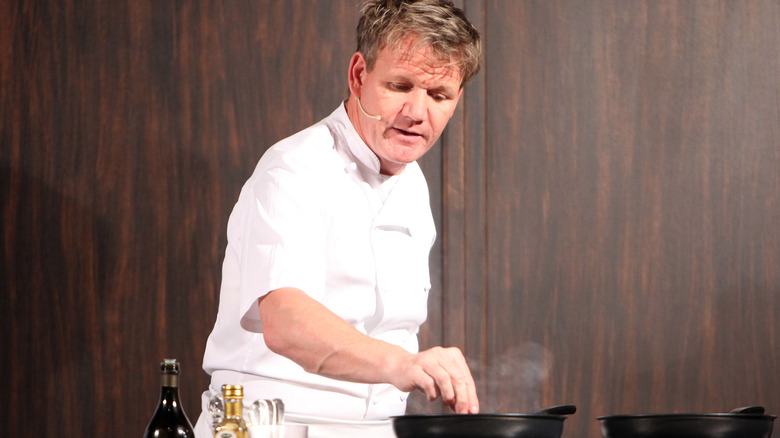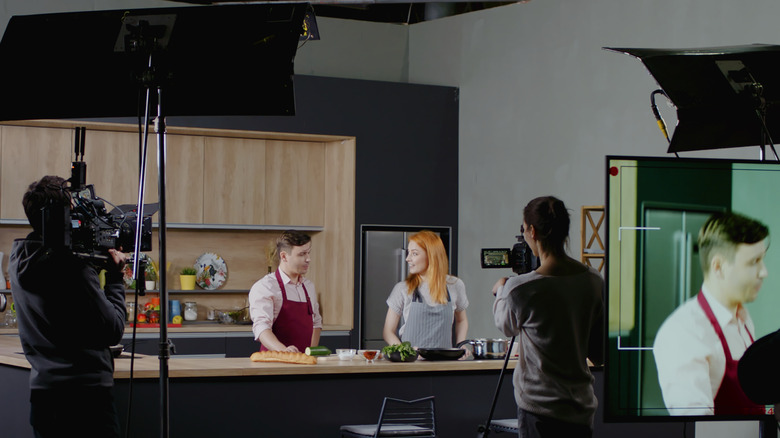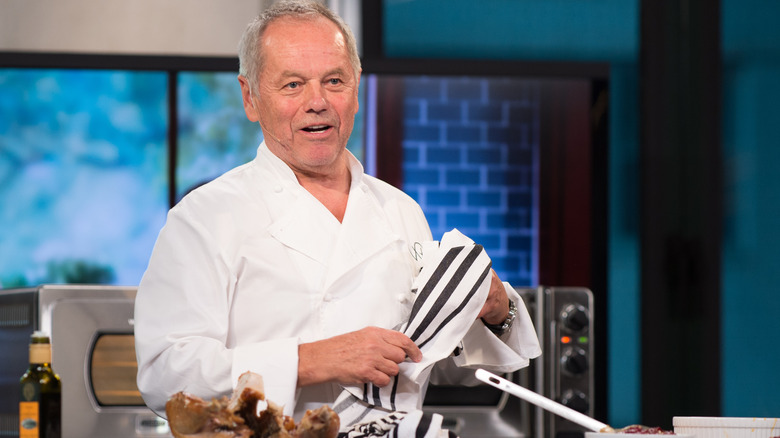The One Thing TV Chefs Don't Want You To Know About Their Recipes
With charm and stage presence, it's no wonder that the most beloved TV chefs have risen to their level of success. That, and they can explain cooking in a way that is attainable to the common viewer while fostering an appreciation for the art of the craft. And, of course, their recipes always look as beautiful as they probably taste; some viewers may have tried to lick the screen more times than they would like to admit. From the down-to-earth, warm Rachael Ray to the outspoken, undeniably entertaining Gordon Ramsay, each of these television personalities brings their own unique styles and charisma to the table and has cooked their way into the hearts of viewers all over the world.
Within the robust world of television cooking shows, there's a behind-the-scenes secret that viewers may be surprised to learn. Though it doesn't detract from the entertainment and educational value these chefs bring to the programs, it may alter the viewing experience altogether.
Where the recipes actually come from
The truth is those recipes the chefs prepare in front of the camera are often not their own recipes. This secret was exposed in an article from Reader's Digest, which pulls back the curtain on so many industry secrets among television chefs.
According to the article, the reasons they don't write their own recipes for TV are pretty straightforward. Many chefs are often juggling multiple programs and projects at once, so they simply don't have the time to develop new recipes for each episode. Instead, they will allocate that responsibility to behind-the-scenes writers or recycle recipes from other sources.
The article also claims that some of these figures care more about being on television than the actual cooking piece of it. Or, probably most shockingly, for chefs of such renown, "A few just don't know how [to write recipes of their own]." Though it is difficult to tell which TV chefs fall into which category, it is certainly interesting to speculate.
This doesn't mean celebrity chefs are frauds
Television is not the only medium for ghostwritten recipes, though. In the cookbook industry, it's also common for recipes to come from sources beyond the chef credited as the author. The co-writer (sometimes credited, sometimes not) will often serve as a recipe tester as well, assuring the dishes' quality matches the chef's credibility on the cover. This practice is so common; The New York Times dedicated an article to the experiences of different writers behind famous faces. These experiences ranged from helping the author write their introduction to ghostwriting entire books on their own. "Those are the cases where you are pretty sure the chef never even reads the book," one writer stated.
Of course, these little industry secrets do not apply to every celebrity chef, and revealing them is not meant to shame any celebrity chef who is in on them. Even if they are not always the brain behind the recipes or encouraging words, there is no doubt that they know how to bring these recipes to life. Enthusiastically cooking delicious meals in front of a camera (all while making viewers feel capable of cooking them, too) is not an easy feat. That in itself is worth recognizing and appreciating.


